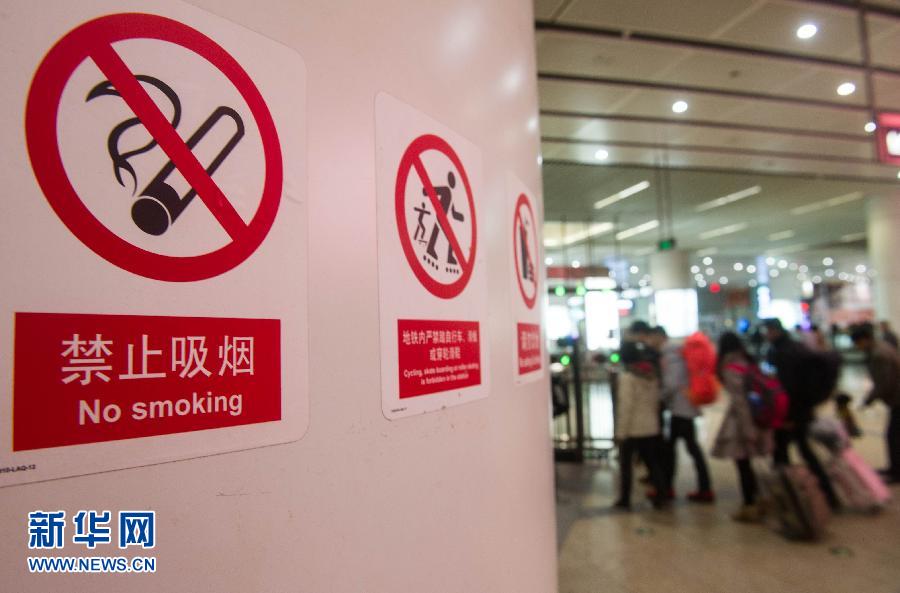Nationwide public smoking ban possible
- By Sally L.satel and Sarahann Yeh
 0 Comment(s)
0 Comment(s) Print
Print E-mail China Daily, May 20, 2015
E-mail China Daily, May 20, 2015
|
|
|
Beijing will implement a city-wide ban on smoking in all indoor public spaces, such as restaurants and offices, as well as on tobacco advertising outdoors, including those on public transport vehicles and in most forms of media. [Xinhua photo] |
In a few weeks, Beijing will implement a city-wide ban on smoking in all indoor public spaces, such as restaurants and offices, as well as on tobacco advertising outdoors, including those on public transport vehicles and in most forms of media. If the initiative, agreed late last year by the Beijing municipal people's congress, is successful, China may impose a similar ban nationwide.
A significant decline in smoking would undoubtedly bring enormous public health benefits to China. But is it feasible?
With an estimated 300 million smokers, China represents one-third of the world's total smokers and accounts for an average of roughly 2,700 tobacco-related deaths a day. The costs of treating smoking-related diseases, not to mention the associated productivity losses, are considerable.
But China has so far struggled to reduce smoking or enforce bans effectively. Indeed, despite ratifying the World Health Organization's Framework Convention on Tobacco Control in 2005, China failed to fulfill its commitment to ban indoor smoking by 2011. Moreover, tobacco output increased 32 percent.
The obvious question is: Why the Chinese government, which is not known to be shy about imposing paternalistic policies in other areas, does not simply ban cigarette production and use altogether? After all, other countries and localities, from Scandinavia to New York City, have made smoking prohibitively expensive and illegal in most public places.
The reason why China has not taken this path lies in the jobs and revenue that the industry provides. The State-owned China National Tobacco Corporation sells almost all of the cigarettes consumed in the country. Indeed, it is the world's largest cigarette manufacturer, supplying 2.5 trillion annually, which in turn generates 816 billion yuan ($131.5 billion or 7-10 percent of GDP) in revenue. Tobacco receipts finance as much as half of some provincial governments' budgets. Even in a country like China, the loss of so much income, not to mention the ire of 300 million addicts, would make prohibition a huge challenge.







Go to Forum >>0 Comment(s)